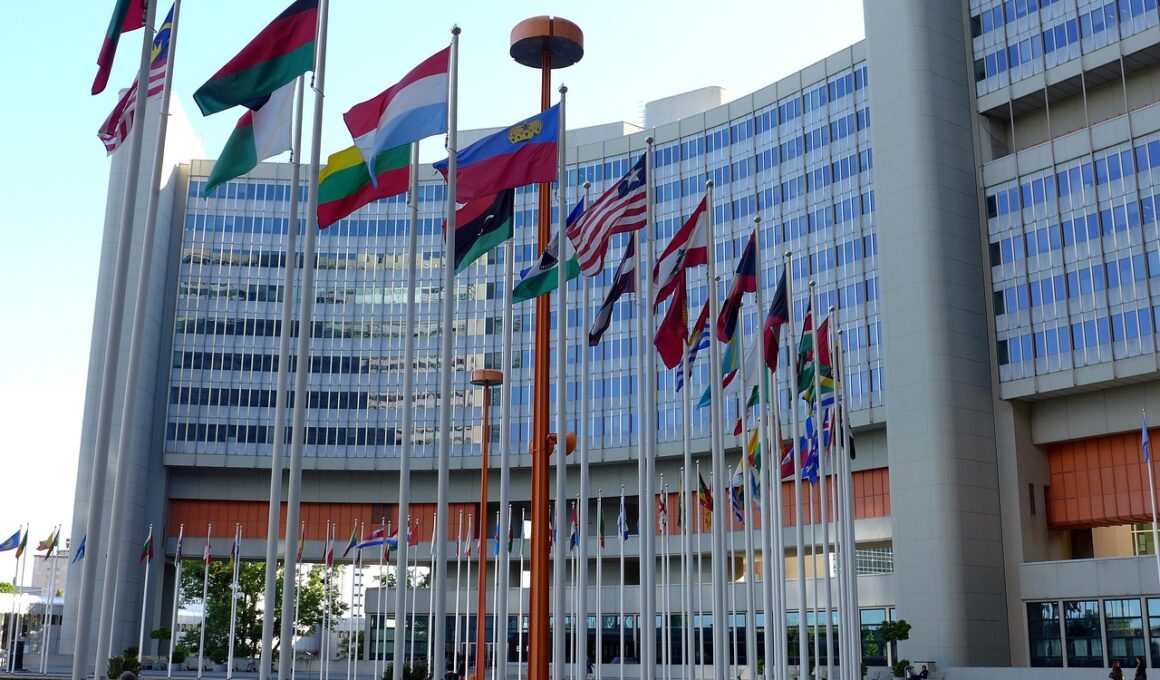Overlooking Cultural Differences in International Negotiations
When engaging in international negotiations, one of the most common mistakes is overlooking cultural differences. Cultural nuances can significantly impact negotiation dynamics and outcomes. Every culture has its own communication styles, expectations, and ways of doing business. For instance, while some cultures favor directness and assertiveness, others may prefer a more subtle and diplomatic approach. Failure to recognize these differences can lead to misunderstandings, conflicts, and ultimately, unsuccessful negotiations. Moreover, acknowledging cultural differences can enhance trust and build rapport among negotiating parties. By adapting your negotiation strategy to account for these variations, you can cater to the preferences and values of your counterparts. This adaptability can facilitate smoother discussions and pave the way for constructive solutions. To navigate cultural differences effectively, it’s essential to conduct thorough research on the cultural backgrounds of the parties involved. This preparation allows negotiators to anticipate potential challenges and align their strategies. In this increasingly globalized world, understanding cultural perspectives is paramount to achieving desired outcomes in international negotiations. Thus, developing cultural awareness is not just beneficial; it is essential for successful negotiation in today’s diverse international landscape.
Language barriers represent another challenge in negotiations unless parties speak a common language adequately. Miscommunication often arises from linguistic differences, as certain phrases or idioms may not translate well. This can lead to critical misunderstandings of intentions and positions. Moreover, tone and non-verbal cues differ from culture to culture, causing additional confusion when not appropriately interpreted. Skilled negotiators should, therefore, strive for clarity in their communication. Using simple language and avoiding jargon can reduce confusion and ensure that both parties comprehend each other’s messages effectively. Engaging the help of professional translators, if necessary, can further bridge any gaps in communication. Providing written summaries of key points in both languages can also help reinforce mutual understanding. Furthermore, being open to feedback and checking for understanding can help prevent significant pitfalls in negotiations. For effective international negotiation, it is furthermore vital to remain patient and empathetic towards different communication styles. By cultivating patience, negotiators can create an inclusive environment where questions are welcomed. This approach not only enhances mutual respect but fosters a collaborative atmosphere that can lead to creative solutions.
Different cultures possess diverse negotiation styles that often reflect intrinsic values and norms. In some cultures, collective decision-making is key, while in others, individual authority may play a vital role. Negotiators must understand these styles to formulate appropriate strategies. For example, a negotiator from a culture that values consensus might struggle when facing someone from a more hierarchical culture. Understanding these dynamics can guide negotiators toward better strategies that align with their counterparts. By being aware of these differing styles and adapting accordingly, negotiators can achieve more favorable outcomes. Building relationships before initiating discussions is another critical aspect influenced by cultural differences. In some cultures, building rapport can take longer but is crucial for successful negotiations. Recognizing these priorities allows negotiators to be more patient and engage in trust-building activities that may not yield immediate results. Investing time in relationship-building can lead to more productive negotiations as parties feel more at ease. In contrast, rushing into negotiations can be perceived as disrespectful and counterproductive. Therefore, adaptability to varying styles foundationally enhances the negotiation process.
Negotiation Tactics Influenced by Culture
American negotiators often utilize competitive tactics, focused on maximizing their gain, while many Asian negotiators prioritize harmony and relationship longevity. These contrasting approaches can lead to tension or confusion during negotiations. Understanding that your counterpart may employ a different strategy is critical to adapting effectively without losing your objectives. Acknowledging these tactical differences equips negotiators to respond better to counterparts’ presentations, proposals, and reactions. For instance, if you perceive delay tactics or indirect communication, you might adjust by encouraging direct conversation. Additionally, understanding the significance of non-verbal cues can enhance your responsiveness. Cultures, like Japan and China, emphasize a more reserved use of body language than the more expressive tendencies common in Western cultures, particularly the U.S. Misinterpreting these signals can result in problematic negotiations or relationship strains. Therefore, honing your skills in reading such cues can dramatically improve your negotiation efficacy. Integrating these insights into your planning can provide you with a competitive edge and ensure you remain both respectful and effective during international negotiations. Overall, recognizing these tactical nuances is crucial for fruitful negotiations in a global context.
Another crucial mistake is assuming that all parties share the same goals and definitions of success. Cultural backgrounds vividly influence one’s goals, risk tolerance, and clarity surrounding negotiation outcomes. For example, while some may prioritize financial outcomes above all, others might emphasize long-term relationships or community benefits. Misaligning on fundamental objectives can derail negotiations and lead to frustration. Clear communication about each party’s expectations is essential for avoiding this pitfall. Parties should dedicate time at the beginning of negotiations to align their objectives, seeking common ground and identifying potential areas for compromise. Additionally, regularly revisiting these goals throughout discussions can help maintain focus and ensure everyone is on the same page. Recognizing that differing objectives can stem from cultural values rather than individual desires fosters understanding and cooperation. It’s also important to remain flexible and willing to adapt your expectations if needed. Implementing collaborative approaches, where all parties can voice their views and redefine success together, can help prevent misunderstandings and pave the way for win-win scenarios. Cultivating a mindset of patience and accommodation is vital in international negotiations.
Emotional Intelligence in Negotiation
Emotional intelligence is an essential trait for successful negotiation, especially in international contexts where cultural differences abound. Understanding and managing one’s emotions, as well as recognizing others’ emotions, can lead to better outcomes. Emotions may play a significant role in negotiations, often dictating reactions and responses to various situations. Being conscious of these emotional dynamics allows negotiators to navigate sensitive conversations effectively. Additionally, it enables them to maintain composure even in challenging negotiations. Experiencing cultural misunderstandings can evoke strong emotions; therefore, acknowledging these feelings and responding respectfully is crucial. Adaptability and empathy become key elements when dealing with culturally diverse negotiating parties. By effectively managing emotions, negotiators can foster a collaborative environment that encourages open dialogue and creativity. Utilizing active listening techniques ensures that all parties feel heard and valued, further enhancing rapport. Emotional intelligence also plays a role in conflict resolution, allowing negotiators to identify and address underlying tensions before they escalate. In a negotiation landscape where emotions run high, cultivating emotional intelligence is a skill that proves invaluable for ensuring successful outcomes in various international contexts.
Lastly, ensuring follow-up communication is key to solidifying negotiations. After the formal negotiations conclude, taking the time to summarize agreements and logistics clarifies expectations going forward. This follow-up ensures that any misunderstandings are remedied and allows for continued relationship building. By engaging in this practice, parties demonstrate respect for each other’s time and effort, fostering goodwill. Moreover, follow-up creates an opportunity to express gratitude towards the other party, reinforcing positive rapport. Depending on cultural backgrounds, this stage may look different, so awareness of preferred communication styles is paramount. Some cultures may prefer more formal follow-ups, while others may appreciate a casual approach. Being attentive to these preferences reinforces respect and mutual understanding. Encourage feedback during follow-ups to gauge any lingering concerns. This proactive approach can prevent complications in the future and rectify any possible miscommunications. Investing effort into leverage communication opportunities, even if minor, significantly enhances mutual trust and credibility in international negotiations. This commitment can pay dividends as lasting relationships are established and developed through continued interactions, ultimately leading to successful future negotiations.
This concludes our examination of avoiding negotiation mistakes linked to cultural differences. In understanding cultural nuances, managing communication, and utilizing emotional intelligence, negotiators can significantly enhance their effectiveness. Overall, much of this success hinges on adaptability, patience, and respect towards diverse perspectives. Cultivating these skills can equip negotiators for triumph in today’s global landscape. By valuing cultural differences and addressing others’ needs, negotiators are far more likely to achieve sustainable outcomes. Remember that integrating these insights will not only facilitate the negotiation process but strengthen relationships long after negotiations have concluded.





